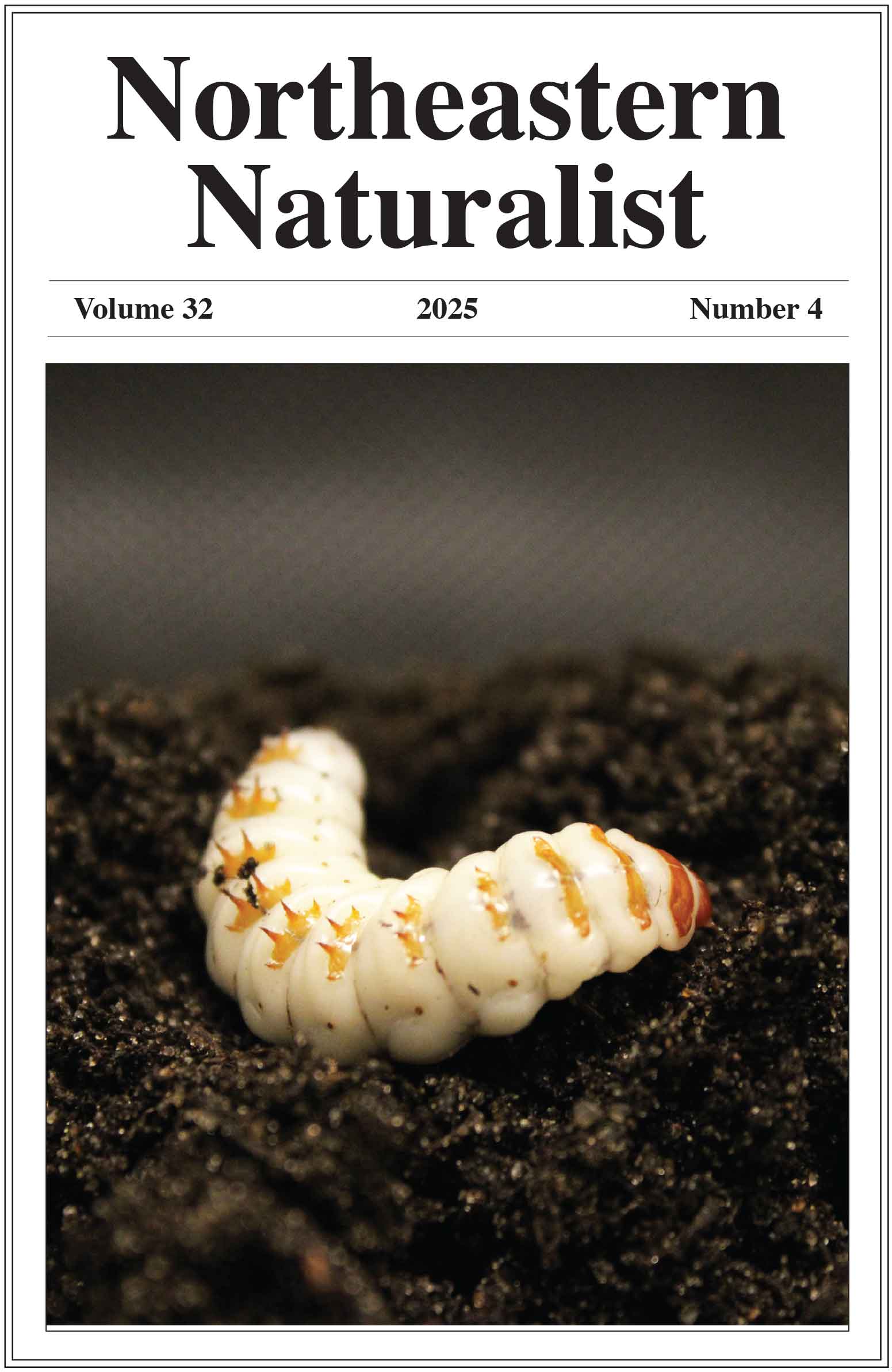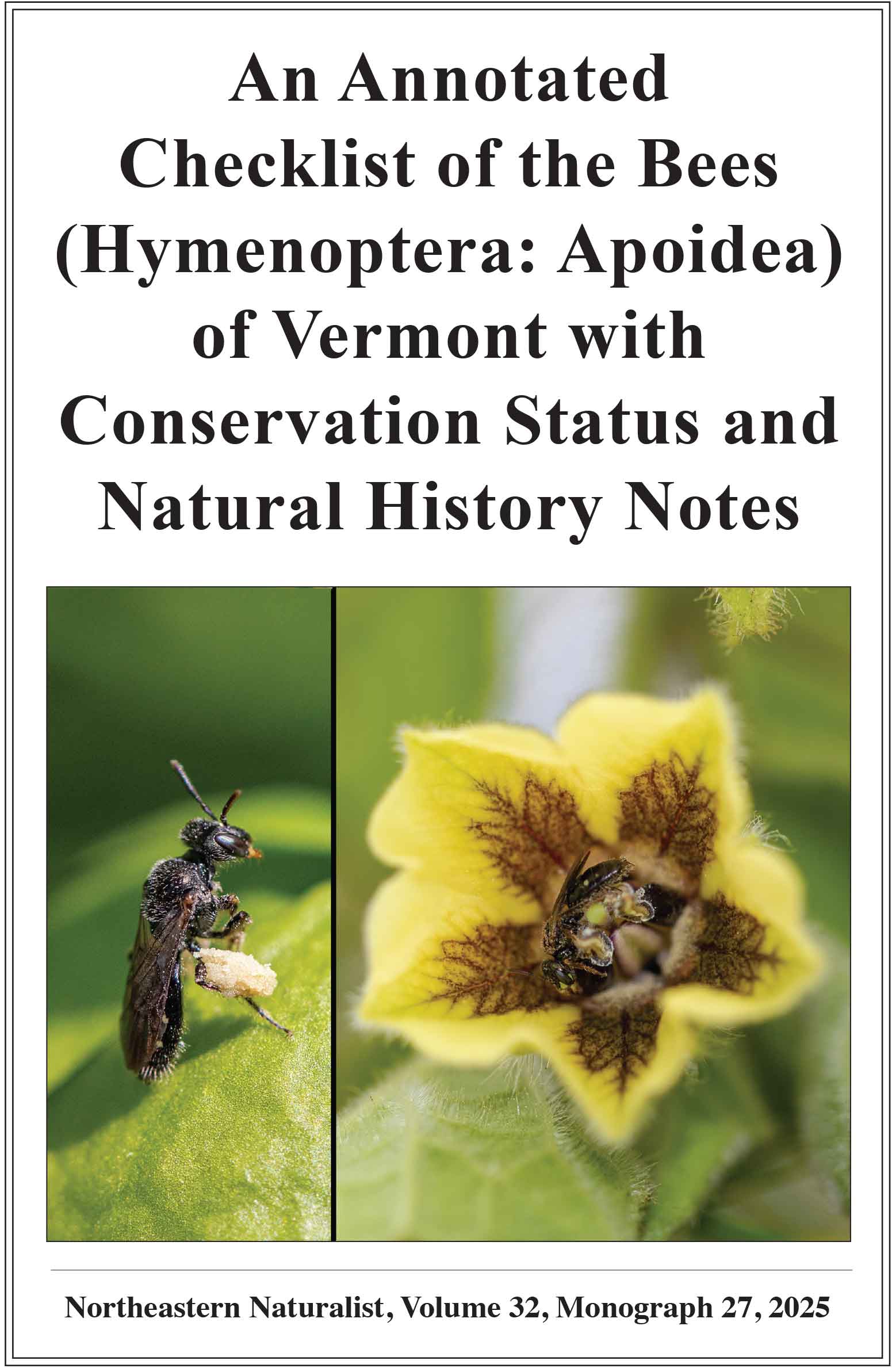Seasonal Variation in use of PVC Refugia by Gray Treefrogs (Hyla chrysoscelis/Hyla versicolor) in Southeast Ohio: Implications for Monitoring
Donald P. Althoff1,*, Wayne D. Rossiter1, and Jessica M. Dyson1,2
1School of Natural and Social Sciences, University of Rio Grande, Rio Grande, OH 45674.2Current address - US Forest Service, 13700 US Highway 33, Nelsonville, OH 45764. *Corresponding author.
Northeastern Naturalist, Volume 31, Issue 3 (2024): 370–381
First published early online: 1 September 2024
Abstract
Hyla chrysoscelis (Cope’s Gray Treefrog) and H. versicolor (Gray Treefrog) are common and important species in woodland ecosystems throughout Appalachia, including southeastern Ohio. While the monitoring of treefrogs is comparatively easy in their aquatic breeding habitat, accurately measuring relative abundance in their terrestrial dwelling is more difficult, and biologists must balance search effort with data quality and effectiveness. In this study, we used PVC pipe refugia of differing colors (gray and white) to monitor the treefrog population in a mixed deciduous forest, conducting 30 surveys (5 per year, spanning April–October) over a 6-year period (2018–2023). Treefrog abundances were largest in the first (April) and last (October) yearly surveys, suggesting that early and late-season surveys are sufficient for accurately assessing population trends and dynamics. We also detected a strong preference among treefrogs to utilize west-facing refugia stations, and a slight preference for white PVC refugia. In addition, we observed many non-target species in PVC pipe refugia, which may deter usage by treefrogs as they never co-occurred with other species.
![]() Download Full-text pdf (Accessible only to subscribers. To subscribe click here.)
Download Full-text pdf (Accessible only to subscribers. To subscribe click here.)
Access Journal Content
Open access browsing of table of contents and abstract pages. Full text pdfs available for download for subscribers.
Issue-in-Progress: Vol. 33(1) ... early view
Check out NENA's latest monograph and Special Issue:













 The Northeastern Naturalist is a peer-reviewed journal that covers all aspects of natural history within northeastern North America. We welcome research articles, summary review papers, and observational notes.
The Northeastern Naturalist is a peer-reviewed journal that covers all aspects of natural history within northeastern North America. We welcome research articles, summary review papers, and observational notes.